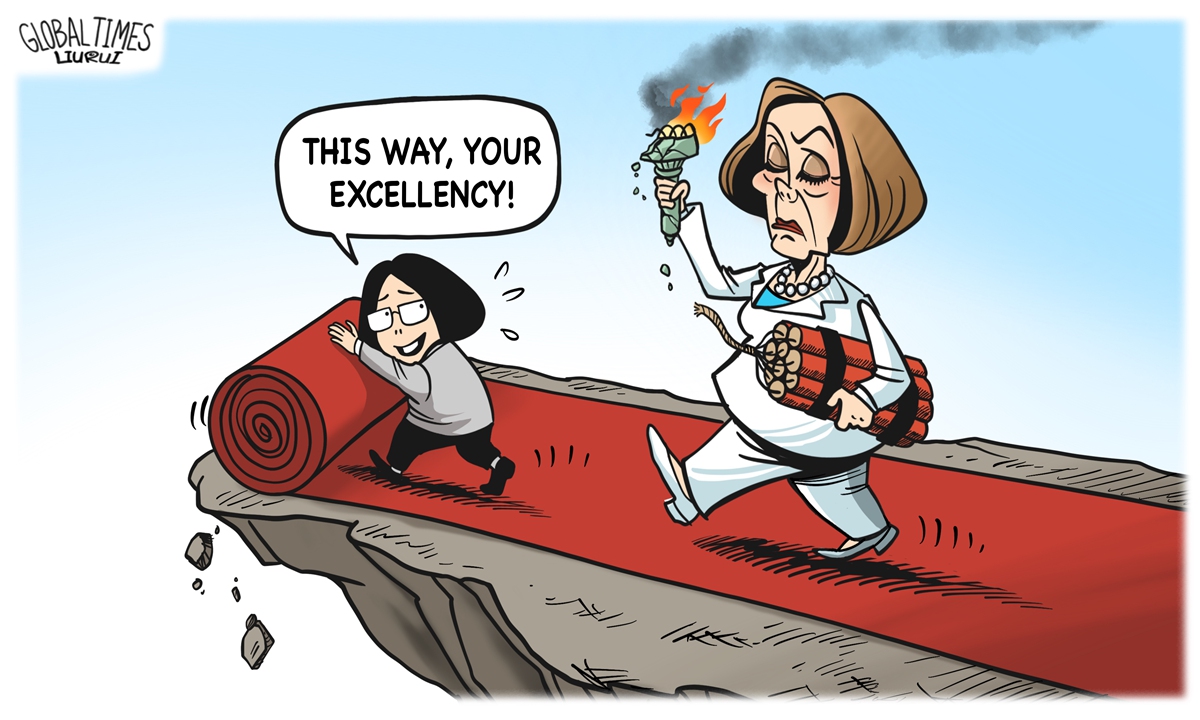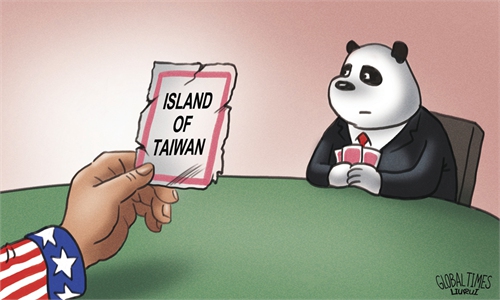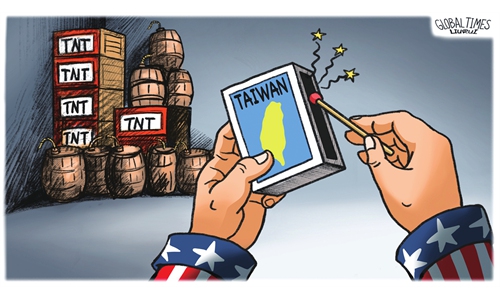
Suicidal mission. Illustration: Liu Rui/GT
Before US House Speaker Nancy Pelosi even finishes her Asia-Pacific trip, subtle different attitudes among US regional allies have emerged toward her provocative visit to China's Taiwan island, indicating profound repercussions this visit will bring to the Taiwan Straits and beyond.In addition to South Korean Foreign Minister Park Jin, who took off for Cambodia to attend a series of annual meetings, South Korean President Yoon Seok-yeol, who is taking a break at his home in Seoul, did not meet Pelosi in person as "his vacation schedule coincides with [Pelosi's] visit," although he eventually had a phone call with the US politician reportedly "under pressure."
Although Pelosi ostensibly talked about her visit as being in line with the so-called democratic values, Seoul is well aware that this visit is a challenge not only to China's core interests, but also to the strategic stability of the region.
This further suggests that using the Taiwan question as leverage in geostrategic policies warrants a high degree of vigilance. Yang Xiyu, a senior research fellow at the China Institute of International Studies, argues that Pelosi's visit to Taiwan island as the No.3 figure in US politics has not only sparked anger in China, but also tensions and concerns throughout the region.
Despite her rhetoric that the visit is to reinforce US commitment to regional allies, her actions apparently contradicted this claim. Her domestic political needs and US interests dominate the visit.
Before the Speaker started her official trip to Asia, Pelosi visited the Pearl Harbor Memorial in Hawaii to "pay tribute to the heroic soldiers who lost their lives in the tragic attack," sending two signals. One is an attempt to showcase US military strength, the second is to indicate that though the US is future-oriented, it will not forget history. Washington does not have Japan in its sights from the bottom of the heart. And by visiting the memorial, there exposed the era of past enmity between Washington and Tokyo, which is also a warning to Japan from US politicians like Pelosi, Yang told the Global Times.
Pelosi's visit to Taiwan has been toxic to the region. With its core national interest challenged, China is bound to take strong countermeasures which will never be one-off but actions with far-reaching effects, Yang pointed out. "Regardless of how the US and Western countries defend Pelosi's visit to Taiwan, it's clear to all that the US undermining China's strategic interests will cause vigilance of those of countries in the Asia-Pacific region."
There are also many other voices in the broader Asia-Pacific region regarding Pelosi's reckless provocation. Some US allies in the region want Washington to consult with them on approaches toward China.
Pelosi's Asia trip is an attempt to promote the US Indo-Pacific Strategy and consolidate political, economic, and diplomatic relations with its allies and partners in the region. Though some of the economic and collective security effects have been welcomed to some extent by certain regional countries, however, more than these benefits, regional countries are concerned about whether the US Indo-Pacific Strategy will bring about regional instability, such as whether it will cause a more violent confrontation between China and the US. Pelosi's visit to Taiwan has, to a certain degree, caused alarm among countries concerned. Regional countries' reserved reactions mirror this problem.


